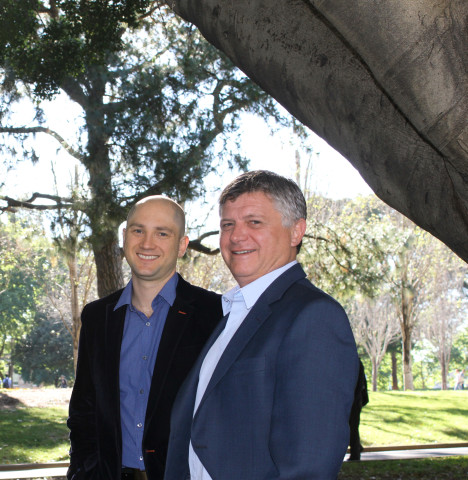Why do so few marketers have any sense?
Taste, smell and touch are proven to change behaviour, so why are they not included in more marketing briefs ask Ashton Bishop and Gary Wilkinson?
The 2013 Roy Morgan Image of Professions survey puts advertising people right down the bottom sandwiched between real estate agents and used car sales people.
The common thread of these bottom dwellers seems to be manipulation or the perception that somehow marketing people are manipulating consumers into buying things they potentially don’t need (the inherent degradation around the way we use the word ‘consumer’ may also have some sway in the matter).



Asks an interesting question when it comes to new business and sales: your office or mine? Maybe travel and time are not the only variables to be considered…
Really enjoyed the research shared on this article and it’s got me thinking about how to apply priming to get the results I need from the people in my life. I will try the smell of cleaning products to see if this gets my boyfriend to put his socks in the hamper tonight!
Great article, well put. Something all marketers should consider. However, a further challenge to this issue is the development of technology which has resulted in people becoming rapidly more and more out of touch with what’s going on around them. Wouldn’t it be nice to see a marketing campaign that had the power to re-engage all the senses and help people feel connected in more ways than one? I’d love to see a campaign in which sight, smell, touch, taste and sound all work together, but what I’d love to see even more is people putting down their iPhone/iPad/Tablet for more than 3 minutes to engage with the masterpiece. Food for thought?
An over simplified summary of the Ultimatum Game? There were significant differences in outcomes between cultures and environments were there not? Behavioural economics doesn’t work that well in Tibet. But Ash and Gary should not worry as the individual is not separate from the surrounding economic environment, but part of it, the individual’s internal ‘rationality’ directly reflecting that of the external economic reality which we live and breathe.
Oh… When I read the title of this article I assumed it referred to “common” sense.
Either way, I agree.
@Mike, there may have been differences in terms of priming (don’t recall) , but the basic tenet of the Ultimatum game… that we will reject an offer if we see it as unfair, even if we are economically disadvantaged… was observed in a vast variety of cultures and environments with no significant differences (From memory, Melbourne University even conducted experiments in PNG using the equivalent of one months salary and got the same results)
Stephen unfairness was only one of the vectors affecting what would otherwise be regarded by some as irrational decision making. Apart from unfairness what about the individual’s personal concepts of utility, reputation, status and identity to name a few. I just have a problem with behavioural economists telling us what is ‘rational’. That’s why we have got to the point in the global economy where just 85 people own half of the world’s wealth. Is that rational or fair?
@Shavonne How about a campaign for people to turn off their technological devices for a day to take notice of their worlds and reconnect with their senses? Whoever describes the day the best wins some sort of prize? I totally agree with you, we don’t even notice or hear people because we’re plugged into our bloody smartphones completely in our own worlds getting “connected”. How ironic!
@Mike, thanks for comments. I certainly empathise with the point that rationality doesn’t always equal fairness.
In Dan Ariely’s The Honest Truth About Dishonesty, he unpacks the ultimatum game and looks at international and corresponding moral differences. He also outlines some really useful frames that might bring rationality, ethics and moral behaviour a little closer.
It’s a really important discussion. The angle Gary and I were focused on here was just looking at the fact that as marketers we sometimes overlook the combination of the senses working together to create a ‘better’ experience for customers.
I think somebody should take on writing a behavioural economics and ethics piece though, as it’s an important discussion worth having.
@Shavonne
Great points. I think we need to quickly understand the drivers and damage that all our ‘social mobile connectedness’ does in creating ‘unsocial mobile isolation’
It’s getting harder and harder to get people to switch-off, get mindful and stay real-world connected.
@Ashton, thanks for your moderate temperate comments – even I find me annoying – if ‘better’ includes ethical it sounds like a good research paper for you to take on.
Love the premise Ash. Particularly when Deloitte released a recent report on Retail in Australia saying customer service is the next focus for this year. I wonder if the big retailers will actually implement this as ‘customer experience’ utilising all the sensory opportunities as you outlined?